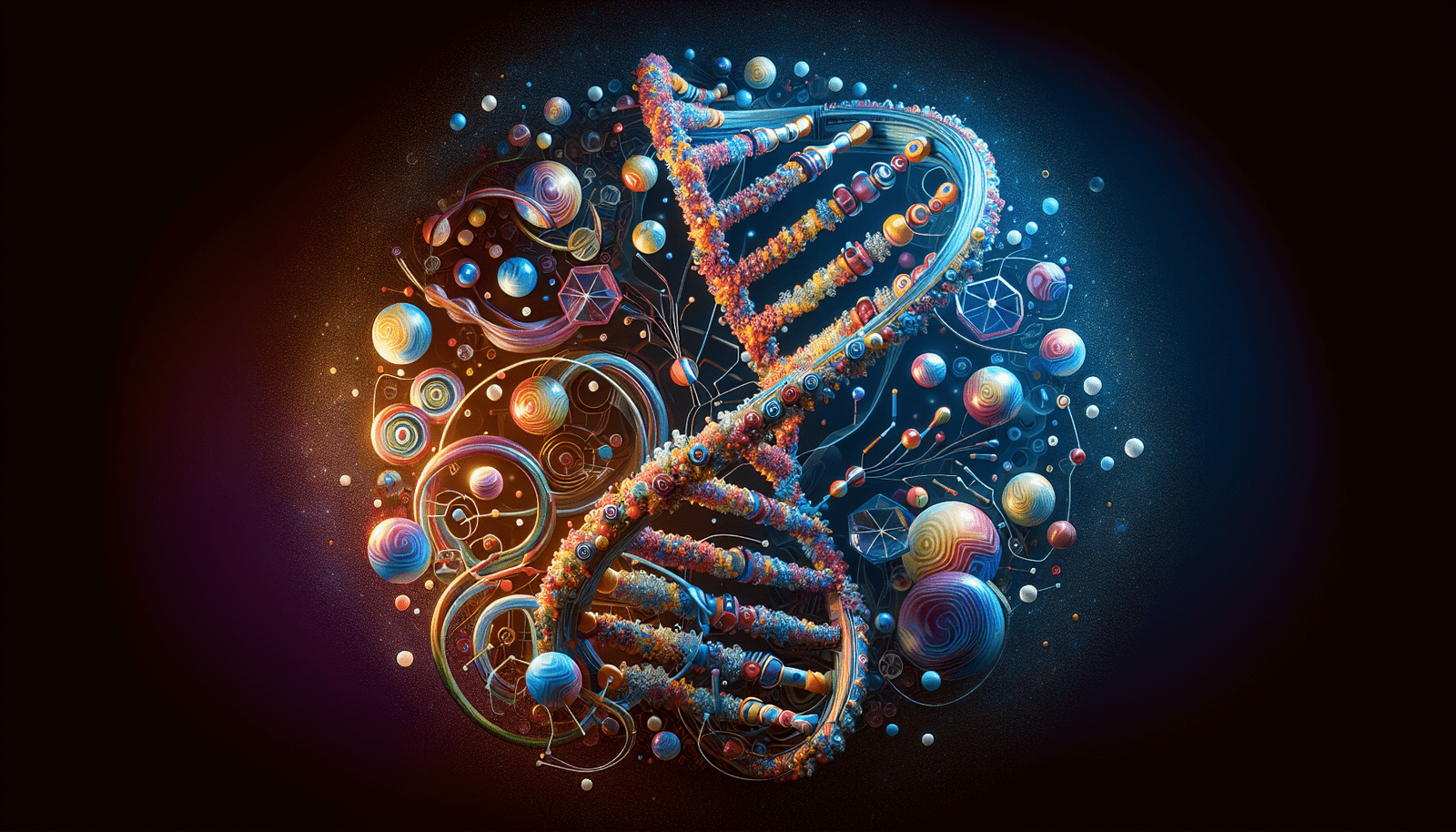Have you ever wondered why some people can enjoy a bowl of spinach without a second thought, while others face discomfort or health issues afterward? The answer may lie hidden within your genes. Understanding how genetics influence oxalate sensitivity can provide valuable insights into your body’s unique reactions to certain foods.
Understanding Oxalates
Oxalates are naturally occurring compounds found in many plants. These compounds serve several purposes, one of which is to help regulate calcium in the plants. For humans, however, the interaction between oxalates and our bodies can be more complex. When consumed, oxalates can bind to calcium in the gut, potentially forming insoluble compounds that might contribute to kidney stones in susceptible individuals.
Where Oxalates Are Found
Oxalates are present in various foods, most notably in leafy greens, nuts, seeds, and certain fruits. Spinach, beets, and rhubarb are well-known for their high oxalate content. Moreover, oxalates can also be found in lower concentrations in other foods and even in tea and cocoa products. Understanding your personal sensitivity to these can help in making informed dietary choices.
The Role of Oxalates in the Body
Once ingested, oxalates are either metabolized by the gut bacteria or excreted through urine. However, not everyone processes oxalates the same way. For people with a tendency to form kidney stones, these compounds can pose a particular risk. Therefore, understanding the underlying genetic factors that influence oxalate handling in the body becomes crucial.
Genetic Factors Influencing Oxalate Sensitivity
Your body’s sensitivity to oxalates isn’t just about what you eat; it’s also about your unique genetic makeup. Several genes may play a role in how your body processes oxalates, and variations in these genes can influence your sensitivity levels.
Genetic Variants and Oxalate Processing
Scientists have identified specific genetic variants that affect the enzymes responsible for breaking down oxalates. These genetic differences can alter the efficiency of oxalate metabolism, thus affecting how your body processes these compounds. For example, variations in the SLC26A6 gene are known to impact oxalate transport in and out of cells.
Enzyme Deficiencies and Their Impact
Enzyme deficiencies due to genetic mutations can hinder the body’s ability to metabolize oxalates. This can lead to increased levels of oxalate in the blood and urine, increasing the risk of kidney stone formation and other health issues. Knowing your enzymatic activity levels through genetic testing could be a step towards personalized dietary recommendations.

Health Implications of High Oxalate Levels
Consuming foods high in oxalates isn’t inherently bad, but for those with a genetic predisposition, it might be wise to consider their overall intake. High levels of oxalates in the body can result in various health issues, especially when the body’s mechanisms for dealing with them are compromised.
Kidney Stones and Genetics
The most commonly known risk linked with high oxalate levels is kidney stones. These are hard mineral deposits that form in your kidneys, often composed of calcium oxalate. Genetic factors can influence the likelihood of stone formation, meaning your genetic profile may hold the key to understanding your risk.
Impact on Other Health Conditions
Aside from kidney stones, elevated oxalate levels might contribute to other conditions such as joint pain, connective tissue issues, and even some forms of vulvar pain. Understanding the genetic components can aid in identifying these risks early and tailoring dietary and lifestyle choices to mitigate them.
Personalized Nutrition and Genetics
Thanks to advancements in genetic testing, personalizing your nutrition based on your genetic makeup is more accessible than ever. By understanding your genetic predisposition to oxalate sensitivity, you can make informed decisions about the foods you consume.
Genetic Testing: A Window Into Your Health
Genetic testing can reveal important information about your susceptibility to high oxalate sensitivity. By testing specific genetic markers, you can gain insights into your body’s ability to process oxalates and adjust your diet accordingly. This personalized approach can help prevent potential health issues related to oxalate consumption.
Tailoring Your Diet Based on Genetic Insights
Armed with genetic information, you might choose to limit your intake of high-oxalate foods. Alternatively, you might find that your genetic risk is low, allowing you to enjoy a wider variety of foods. This approach allows for more informed, personalized dietary choices that align with your unique genetic profile.

Management Strategies for Oxalate Sensitivity
Managing oxalate sensitivity involves a combination of dietary adjustments and potentially lifestyle modifications. Understanding your genetic predisposition can assist in implementing effective management strategies.
Dietary Adjustments for Reduce Oxalate Intake
For those with high oxalate sensitivity, it might be necessary to modify your diet to reduce oxalate intake. This could mean choosing lower-oxalate vegetables and fruits, staying hydrated to help the kidneys process and excrete oxalates more efficiently, and possibly incorporating calcium-rich foods during meals to bind with oxalates in the gut before they reach the kidneys.
| Low-Oxalate Foods | High-Oxalate Foods |
|---|---|
| Bell Peppers | Spinach |
| Kale | Beets |
| Cauliflower | Nuts and Seeds |
| Broccoli | Rhubarb |
| Cabbage | Cocoa Products |
Importance of Hydration
Staying well-hydrated is crucial in managing oxalate sensitivity. Proper hydration helps keep your urine diluted, which can reduce the concentration of oxalate and calcium. This, in turn, lowers the potential for kidney stone formation. Aim to drink enough fluids throughout the day, especially if you’re consuming oxalate-containing foods.
Role of Probiotics
Emerging research suggests that gut health plays a role in how the body responds to oxalates. Certain probiotic strains may help break down oxalates in the gut, potentially reducing the amount that reaches the kidneys. Including probiotic-rich foods or supplements could be beneficial as part of your management strategy.
Future Directions in Oxalate Sensitivity Research
The intersection of genetics and nutrition is a rapidly evolving field. As scientific understanding grows, new insights into oxalate sensitivity and management are sure to develop.
Advances in Genetic Research
Modern genetic research continues to uncover the complexities of how our genes influence our health, including oxalate metabolism. Innovations in genetic testing and an increasing understanding of individual genetic variations can lead to more precise and personalized dietary recommendations in the future.
Potential Therapeutic Interventions
In addition to dietary adjustments, researchers are exploring pharmacological interventions that might help those with high oxalate sensitivity. These potential treatments could include enzyme supplements or medications that alter oxalate handling in the body. While such treatments are still in the research phase, they offer hope for more comprehensive management options.
Conclusion
Delving into your genetic predisposition concerning oxalate sensitivity can provide profound insights into your body’s nutritional needs. By understanding the influence of genetics on oxalate processing, you can make informed decisions about your diet and lifestyle. Whether that means adjusting your intake of high-oxalate foods, incorporating probiotics, or simply staying well-hydrated, the key is tailoring your approach to suit your unique genetic profile. With the growing accessibility of genetic testing and personalized nutrition, you have an unprecedented opportunity to take charge of your health in a way that aligns with your genetic makeup.
Understanding your body and its relationship with the food you consume is an empowering journey. As genetic research progresses, you will continually refine your approach to nutrition, deepening your understanding of how best to nurture your health and well-being.


